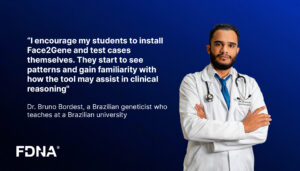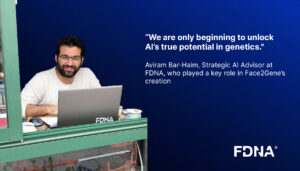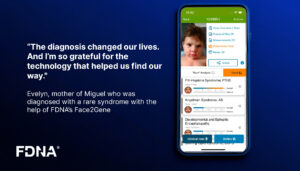Lina Basel-Vanagaite, Lior Wolf, Melanie Orin, ,Lidia Larizza, Cristina Gervasini, Ian D. Krantz, ,Matthew A. Deardoff: DOI: 10.1111/cge.12716 Clinical Genetics 2015
Abstract
Facial analysis systems are becoming available to healthcare providers to aid in the recognition of dysmorphic phenotypes associated with a multitude of genetic syndromes. These technologies automatically detect facial points and extract various measurements from images to recognise dysmorphic features and evaluate similarities to known facial patterns (gestalts). To evaluate such systems’ usefulness for supporting the clinical practice of healthcare professionals, the recognition accuracy of the Cornelia de Lange Syndrome (CdLS) phenotype was examined with FDNA’s automated Facial Dysmorphology Novel Analysis (FDNA) technology. In the first experiment, 2D facial images of CdLS patients with either an NIPBL or SMC1A gene mutation as well as non-CdLS patients which were assessed by dysmorphologists in a previous study were evaluated by the FDNA technology; the average detection rate of experts was 77% while the system’s detection rate was 87%. In the second study, when a new set of NIPBL, SMC1A and non-CdLS patient photos was evaluated, the detection rate increased to 94%. The results from both studies indicated that the system’s detection rate was comparable to that of dysmorphology experts. Therefore, utilising such technologies may be a useful tool in a clinical setting.


